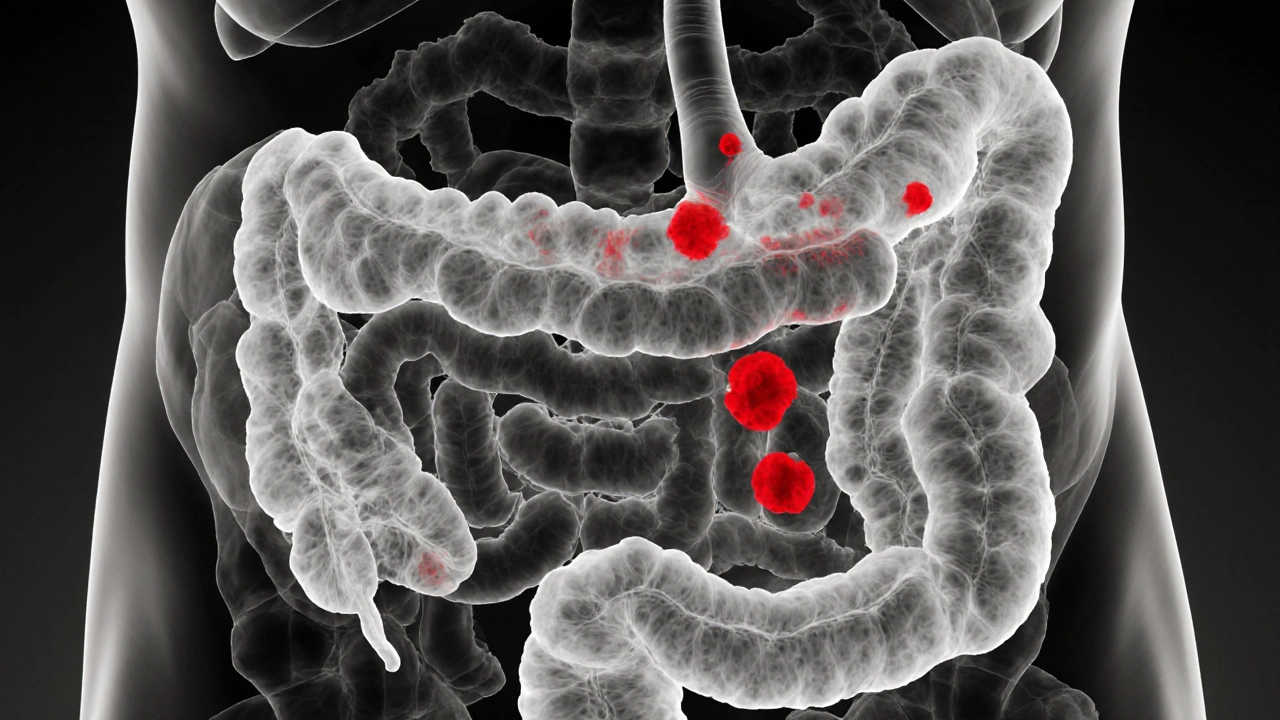Colorectal Cancer: Causes, Signs, and What You Need to Know
When we talk about colorectal cancer, a type of cancer that starts in the colon or rectum, often developing from noncancerous polyps over several years. Also known as colon cancer or rectal cancer, it’s one of the most preventable cancers if caught early through routine screening. Many people don’t realize that colorectal cancer doesn’t always come with obvious symptoms in the early stages. By the time pain, bleeding, or changes in bowel habits show up, the disease may have already progressed. That’s why knowing your risk and staying on top of screenings matters more than waiting for warning signs.
Colorectal cancer doesn’t happen overnight. It usually starts as small growths called polyps inside the colon or rectum. Not all polyps turn cancerous, but some do—especially if they’re left unchecked for years. Age is a big factor: risk goes up after 50, but more young adults are being diagnosed now, which is why guidelines are shifting. Family history, diet high in red or processed meats, smoking, heavy alcohol use, and conditions like ulcerative colitis or Crohn’s disease all raise your chances. And yes, being overweight or inactive plays a role too. The good news? Regular colonoscopies can find and remove polyps before they become dangerous. It’s not just about detecting cancer—it’s about stopping it before it starts.
Screening isn’t just for people with symptoms. Even if you feel fine, getting tested is the smartest move. Tests like colonoscopies, stool DNA tests, or FIT kits are simple, effective, and often covered by insurance. If you’ve been putting off a screening because you’re nervous or busy, think of it like checking your car’s oil—no one enjoys it, but skipping it can cost you dearly. The posts here cover everything from how to prepare for a colonoscopy to what happens after diagnosis, how different treatments compare, and what lifestyle changes can help you stay stronger through treatment. You’ll find clear comparisons of chemo options, insights into how genetics play into risk, and real tips for managing side effects like fatigue or digestive changes. Whether you’re newly diagnosed, supporting someone who is, or just trying to lower your risk, this collection gives you the facts without the fluff.
Learn how polyposis raises colorectal cancer risk, the genetics behind it, screening guidelines, prevention tips, and FAQs for living with the condition.



